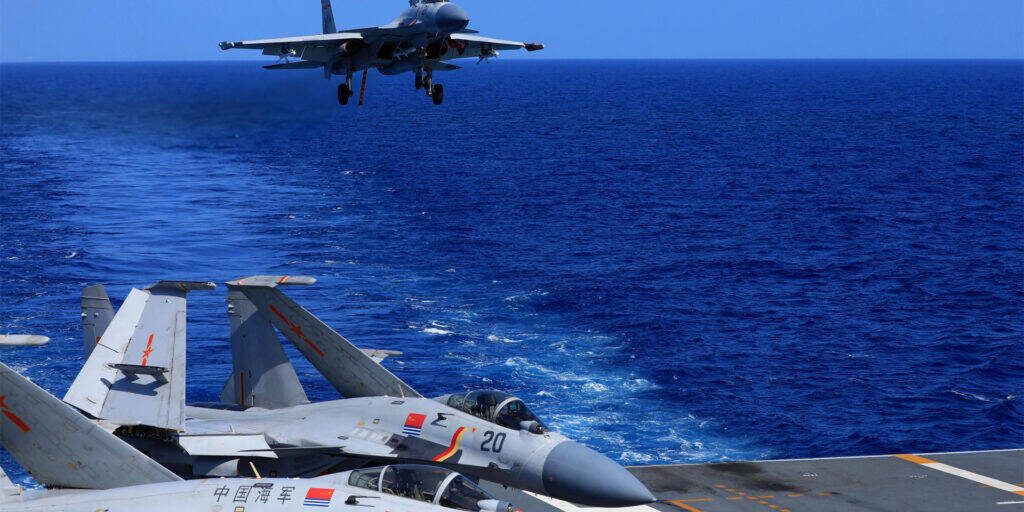Jeung Seung Lee, for Pacific Forum
This PacNet was developed as a part of the United States-Japan-Republic of Korea Trilateral Next-Generation Leaders Dialogue to encourage creative thinking about this vital partnership can be fostered.
In December 2022, the Yoon Suk Yeol administration released its “Strategy for a Free, Peaceful, and Prosperous Indo-Pacific Region” in which ROK will take a leading role as a “Global Pivotal State” to promote the freedom, peace, and prosperity of the Indo-Pacific. To implement the strategy, the next step for the Republic of Korea would be joining the Indo-Pacific Partnership for Maritime Domain Awareness (IP MDA), an initiative that was announced in Quad Leaders’ Tokyo Summit in May 2022.
As an Indo-Pacific nation, South Korea is at a critical juncture where Seoul is required have a delicate balance between addressing the increasing multifaceted challenges in the Indo-Pacific region while also countering threats from DPRK on the Korean peninsula. Fortunately, since South Korean President Yoon Suk Yeol took office in May 2022, South Korea, the United States and Japan have conducted trilateral Ballistic Missile Defense (BMD) and anti-submarine exercises in the East Sea to strengthen deterrence against North Korea’s increased missile threats and agreed to regularize the trilateral exercises during the Defense Trilateral Talks in June 2023.
Nevertheless, Seoul should pay more attention to increasing traditional and transnational security challenges in the Indo-Pacific region. Tensions have been rising in the South China Sea as well as the Taiwan Strait which threaten the free and open sea lanes of communication (SLOC) while non-traditional and transnational security challenges at sea including the piracy and armed robbery at sea, trafficking of humans and illicit goods, and illegal, unreported, and unregulated fishing, and climate change are also on rise.
The United States has been leading in promoting the free and open Indo-Pacific through its annual Freedom of Navigation (FON) operations in the South China Sea to demonstrate that no coastal state can unlawfully restrict navigation and overflight rights and freedoms guaranteed in international law. Japan, on the other hand, has advanced maritime surveillance system that is being synchronized and integrated between the coast guard and self-defense force. Whether it is greater naval presence in the Indo-Pacific region or improved maritime surveillance, Seoul has lessons what it means to be a real maritime nation.
While maritime issues were not the main focus of ROK’s Indo-Pacific strategy, it included that Seoul would deepen maritime security cooperation in the Indo-Pacific region while adhering to the maritime order based on the United Nations Convention on the Law of the Sea (UNCLOS), as well as participation in the establishment of a maritime domain awareness (MDA) system. Against this backdrop, Seoul should join the Indo-Pacific Partnership for Maritime Domain Awareness (IP MDA) to implement its Indo-Pacific strategy.
Joining IP MDA would help South Korea to enhance its maritime security capabilities by sharing information and collaborating on maritime domain awareness, including monitoring, identifying, and responding to maritime security threats. By joining the IP MDA, Seoul would have access to valuable information and resources to better monitor its maritime domain and protect its interests without having to shift all of its assets originally missioned to countering DPRK threats.
Furthermore, joining IP MDA would also help ROK Navy and Coast Guard to strengthen its regional partnerships and cooperation. By working closely with other countries in the Indo-Pacific region such as Southeast Asian nations, Seoul would be better positioned to address such issues. This could help ROK to build stronger ties with its neighbors and establish its role as a responsible stakeholder demonstrating its commitment to maintaining a rules-based international order and promoting regional stability.
Nevertheless, there are also challenges. One would be the potential impact on South Korea’s relationship with China. China is a major power in the region, and its territorial claims in the South China Sea have been a source of tension with other countries in the region. By joining IP MDA, Seoul may be seen as aligning itself with the US-led efforts to contain China’s influence, which could negatively impact its relationship with Beijing.
To address concerns about its relationship with China, South Korea should emphasize that its partnership with the IP MDA is based on the three principles of cooperation—inclusiveness, trust, and reciprocity. Seoul neither targets nor excludes any specific nation, but rather has made it clear that the Republic of Korea is committed to partnering with like-minded countries that share the universal values of freedom, rule of law, and human rights. To avoid the economic coercion from China as shown by the THAAD deployment in 2017, South Korea can contribute toward “collective resilience” against China’s economic statecraft, by partnering with like-minded countries, and leverage its position as one of the world’s leading manufacturers of advanced semiconductors to complicate China’s calculus.
Another challenge would be the costs of integration of technology. As countries have their own information platforms, as shown by India’s own information center IFC-IOR, standardizing a common operating information with often classified information is not an easy task. However, it is important to note that the MDA is an information sharing platform which deals primarily with maritime surveillance to ensure that maritime activities abide by international law such as UNCLOS, as opposed to the sharing classified military intelligence. Once the information sharing process is standardized, which Seoul should participate in, different agencies will be able to utilize information in a more cost-effective way.
In return, South Korea should also make more investments into commercially available data and existing technologies such as satellites to contribute to make the IP MDA more useful by providing real-time data. Seoul certainly has the capacity to do so, as South Korea ranked eighth among 63 countries in the 2022 IMD World Digital Competitiveness Ranking. The good news is that the Korean Coast Guard has recently announced its plans to allocate its budget to establish the Korean MDA system which would increase the area of surveillance of its territorial sea area by more than four times through introduction of medium-altitude UAVs, unmanned underwater vehicles (UUVs), and AI maritime security support system.
In conclusion, it is time for the Republic of Korea to step up as a “Global Pivotal State” to implement its “Strategy for a Free, Peaceful, and Prosperous Indo-Pacific Region” by joining the IP MDA. Joining IP MDA would enable ROK to enhance its maritime security capabilities, strengthen regional partnerships and cooperation, and promote a rules-based international order and ultimately, become the Global Pivotal State it aspires to be.
The original article can be found here at the Pacific Forum.
Author:
Jeung Seung Lee (js.lee@kims.or.kr) is a research associate at the Korea Institute for Maritime Strategy (KIMS) in Seoul, South Korea.
Feature Image: ROK Coast Guard vessel 3006, via Wikimedia Commons


